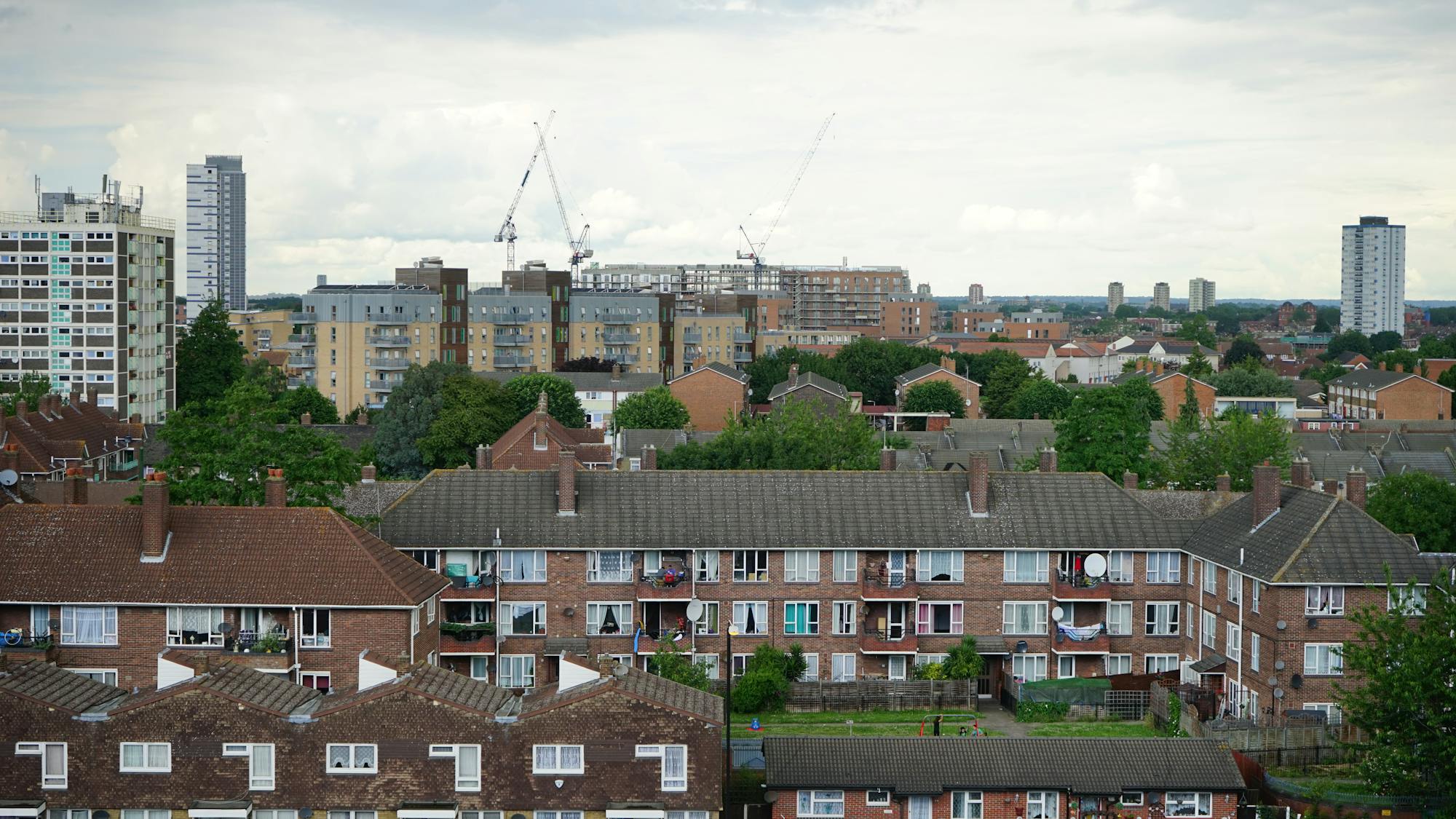Starting this year, state law bans local governments from forcing California landlords to act against tenants who were or may be involved in the criminal justice system. The law, passed last year, was supported by civil rights and landlord organizations.
“Crime-free” or “Non-White” Free Housing Policies?
Assembly Bill 1418, signed by Gov. Gavin Newsom in October and in effect since January 1, prevents mandatory evictions of tenants and their families due to criminal histories or contacts with law enforcement. Some of these “crime-free housing” policies required landlords to evict tenants for arrests and prevented them from renting to potential tenants with prior convictions. The bill passed both legislative houses without a dissenting vote.
The bill’s author, Assemblymember Tina McKinnor claimed these efforts had the effect of primarily excluding or removing Black and Latino renters, reports the Los Angeles Times.
A 2020 Times investigation found that “crime-free housing” policies were becoming more popular in the state, especially where there were growing Black and Latino populations. Some local governments instituted these policies despite crime rates falling or being stable. In some localities, these rules were enforced against Latino, Black, and other tenants of color far out of proportion to their share of the population.
Were Policies Meant to Protect Communities or “Correct a Demographic Problem”?
“Crime-free housing” efforts in California vary widely. Some include police training of landlords on anticrime lease provisions and criminal background checks. On the other end of the spectrum is the city of Hesperia in San Bernadino County. Landlords were required to evict tenants and their families based on police suspicions they may be involved in criminal acts on or near their properties.
The Times reports that before its passage, a Hesperia council member stated the policy’s purpose was “to correct a demographical problem with people that are committing crimes in this community.” The investigation found 147 local governments, more than a quarter of the state’s total, had crime-free housing laws or advertised police training of landlords. About 2,000 local governments are estimated to have “crime-free housing” rules throughout the US.
Legal Actions Result in Local Policy Reversals
Hesperia and the San Bernardino County Sheriff’s Department last year settled a lawsuit filed by the U.S. Department of Justice after their investigation found that Latino tenants were 29% more likely, and Black renters were nearly four times more likely than White renters to be evicted under the program. Defendants agreed to pay $1 million to those impacted by the policy.
Riverside and San Bernardino repealed their ordinances in September. San Bernardino was obligated to do so due to a case settlement challenging its “crime-free housing” program filed by legal aid organizations and California’s Attorney General.
What “Crime-Free Housing” Policy Should You Have?
While local governments can’t force landlords to evict or screen out applicants with arrest or conviction records, landlords could initiate their own efforts. Landlords may legally be in a no-win situation regarding their personal “crime-free housing” practices.
Neither of the state’s two primary civil rights laws, the California Fair Employment and Housing Act and the Unruh Act, state it’s illegal for a landlord to use a potential tenant’s criminal history to prevent them from renting a unit.
State regulations cover the issue of whether such information can be used. They state using criminal history to base a rental decision is unlawful if it has a discriminatory effect unless a legally sufficient justification applies. If your tenant screening process produces a discriminatory effect, you have a defense if:
- This practice is needed to achieve one or more legitimate, substantial, non-discriminatory business interests, including tenant, employee, or property safety, and it effectively achieves those interests
- You must consider and use only criminal history information that’s directly relevant to renting a unit
- This involves the crime’s severity, nature, and how much time has passed since it occurred
- An example for landlords is in one of the regulations: “(A) recent criminal conviction for residential arson could be directly-related to the risk that an individual may injure other residents or property because there is a rational relationship between recently committing residential arson and injuring residents or property”
- There’s no feasible alternative that equally or more effectively accomplishes your business interests while causing a less discriminatory effect
By using a criminal background check to decide who should or shouldn’t be a tenant, you may step into these muddy discrimination law waters. You may drown in them if you only use these checks when tenants of one race or ethnicity seek a unit but not others because the defenses in the regulation go out the window.
The issue wouldn’t be the effect of your practice and how it protects your interests. It would be the discriminatory, selective method of examining possible tenants’ backgrounds. It would be like requiring a $1500 security deposit for those of one racial group and a $3000 security deposit for others. You’re free to require security deposits from tenants. You’re not free to do so in a discriminatory way.
On the other hand, you may face a personal injury action if you fail to screen out potential tenants who may pose a danger to fellow tenants and those visiting your building. If you don’t use a criminal history check or perform one negligently and rent to a violent tenant who harms someone else in a foreseeable way, you might be sued by the victim who seeks compensation for their injuries.
AWB Law is Here to Help
If you’re a residential landlord with questions or concerns about your legal obligations or need legal representation, call the legal team at AWB Law at (949) 244-4207 or complete our online contact form today to schedule a consultation.










